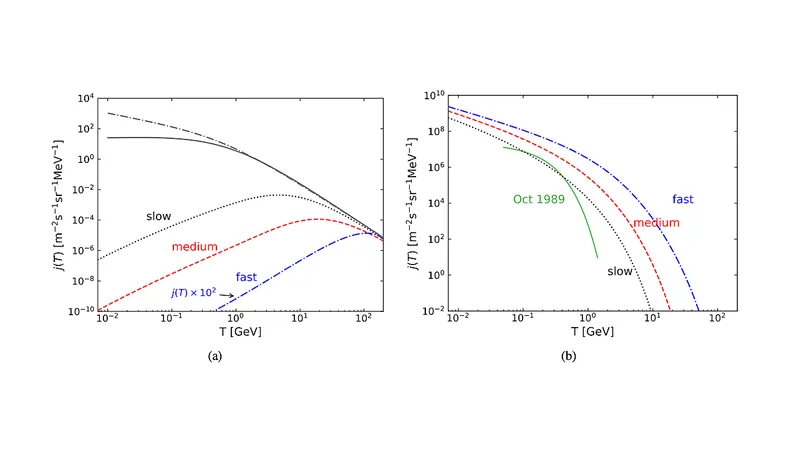
Revolutionary Drug Tirzepatide Shines in Battle Against Heart Failure and Kidney Disease!
2025-04-01
Author: Arjun
Groundbreaking Study Highlights Tirzepatide's Efficacy
In a groundbreaking study presented at the American College of Cardiology’s Annual Scientific Session and published in the Journal of the American College of Cardiology (JACC), the medication tirzepatide has demonstrated significant improvements in kidney function and cardiovascular outcomes for patients suffering from obesity and heart failure with preserved ejection fraction (HFpEF). After a year of treatment, patients receiving tirzepatide showed better results compared to those on a placebo.
Focus on High-Risk Patient Group
This remarkable research involved a critical look at data from the SUMMIT trial, focusing on a vulnerable group of individuals—those grappling with obesity, chronic kidney disease, and HFpEF. These interrelated conditions frequently lead to devastating health outcomes, creating a stark need for effective treatments. “The interplay of these three conditions identifies a patient population as exceptionally high risk,” stated Dr. Milton Packer, a leading researcher in cardiovascular science at Baylor University Medical Center. He emphasized the importance of developing therapies that can address all three issues simultaneously.
Understanding HFpEF and Chronic Kidney Disease
HFpEF occurs when the heart muscle fails to expand sufficiently, leading to increased pressure within the heart. Similarly, chronic kidney disease prevents the kidneys from properly filtering blood, allowing toxins to build up over time. Both conditions worsen progressively and require comprehensive treatment approaches.
Mechanism of Action for Tirzepatide
Tirzepatide works by targeting specific receptors to reduce fat cell size, thereby alleviating some of the adverse effects that enlarged fat cells have on heart and kidney health. The drug has gained FDA approval for treating obesity and is also recognized for its efficacy in managing Type 2 diabetes. While previous studies have highlighted improvements in kidney function with other drugs in this class, this trial marks the first significant exploration of tirzepatide's dual impact on kidney and cardiovascular outcomes specifically in individuals with obesity, chronic kidney disease, and HFpEF—affecting an estimated 2 to 3 million adults in the U.S.
Details of the SUMMIT Trial
In the SUMMIT trial, which enrolled 731 patients with HFpEF and a body mass index of 30 or higher, around 60% had chronic kidney disease. Participants were randomly assigned to receive either tirzepatide or a placebo, with the assignment hidden from both patients and clinicians.
Key Findings and Results
At the end of the one-year period, those taking tirzepatide experienced a 38% lower rate of cardiovascular death or worsening heart failure compared to the placebo group. Additionally, their quality of life, as measured by the Kansas City Cardiomyopathy Questionnaire Clinical Summary Score, improved significantly.
Consistency of Results Across Patient Groups
Critically, improvements were consistent across both groups of patients—with and without chronic kidney disease—who took tirzepatide. However, it was observed that participants with chronic kidney disease faced more severe heart failure symptoms compared to those without it, emphasizing the need for targeted therapies in these high-risk individuals.
Assessment of Kidney Function
Two measures were utilized to assess kidney function—creatinine and cystatin C—showing that participants on tirzepatide significantly outperformed those on placebo with regard to both indicators. Despite variability in results over time, the overall findings underscored tirzepatide's beneficial impact on kidney health.
Hope for Patients with Coexisting Conditions
Dr. Packer noted that many patients with obesity and HFpEF coupled with chronic kidney disease currently have limited access to effective treatments. The positive results seen in the study regarding kidney function, alongside improvements in heart health and weight, signal hope for this neglected patient group.
Future Research Directions
As the researchers plan to further analyze data from the SUMMIT trial, they aim to uncover more insights into the underlying mechanisms connecting obesity, kidney disease, and heart failure.
Conclusion and Outlook
This research sheds light on a potential lifeline for millions of patients struggling with overlapping health challenges. Stay tuned for continued updates on this exciting development in medical science!



 Brasil (PT)
Brasil (PT)
 Canada (EN)
Canada (EN)
 Chile (ES)
Chile (ES)
 Česko (CS)
Česko (CS)
 대한민국 (KO)
대한민국 (KO)
 España (ES)
España (ES)
 France (FR)
France (FR)
 Hong Kong (EN)
Hong Kong (EN)
 Italia (IT)
Italia (IT)
 日本 (JA)
日本 (JA)
 Magyarország (HU)
Magyarország (HU)
 Norge (NO)
Norge (NO)
 Polska (PL)
Polska (PL)
 Schweiz (DE)
Schweiz (DE)
 Singapore (EN)
Singapore (EN)
 Sverige (SV)
Sverige (SV)
 Suomi (FI)
Suomi (FI)
 Türkiye (TR)
Türkiye (TR)
 الإمارات العربية المتحدة (AR)
الإمارات العربية المتحدة (AR)